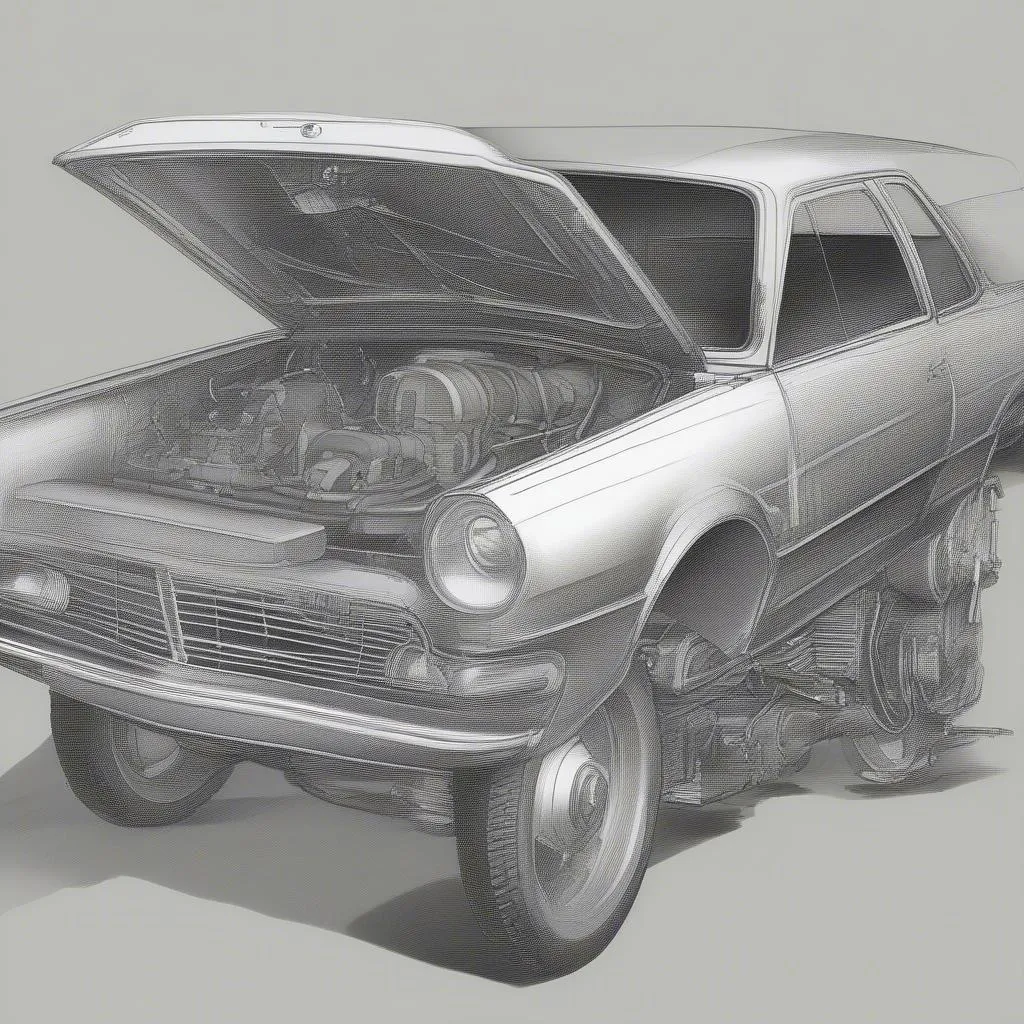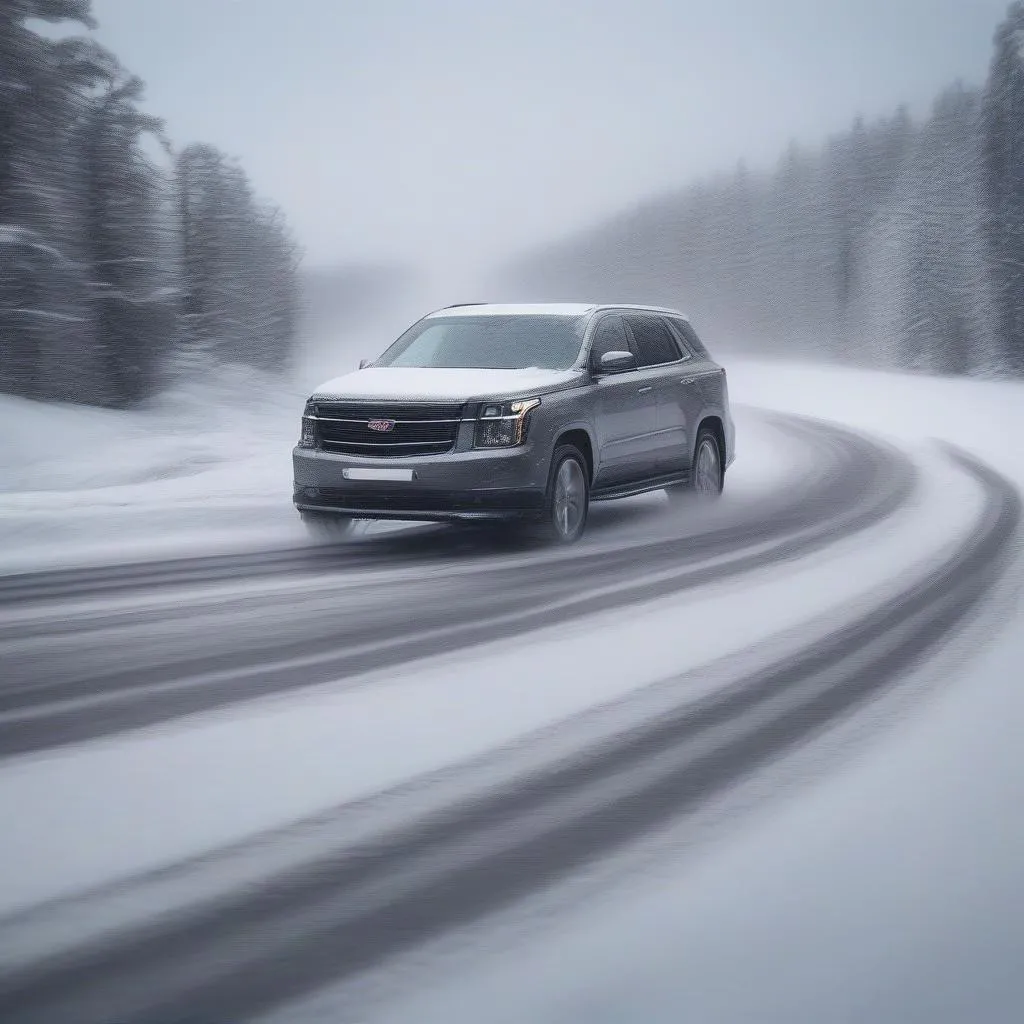Have you ever wondered why some cars have their engine driving the front wheels, while others have their engine driving the rear wheels? This is a common question, and it’s a good one! It’s all about Front Wheel Drive Cars. Imagine yourself cruising down a sunny highway, the wind whipping through your hair. Suddenly, you encounter a patch of ice. You instinctively feel the car’s front wheels start to slip, and your heart races as you struggle to regain control. Now, imagine this same scenario, but instead of the front wheels slipping, it’s the rear wheels. What happens?
Let’s dive into the world of front wheel drive cars and understand the reasons why some vehicles choose this setup over other configurations like rear wheel drive.
Understanding Front Wheel Drive Cars
What is Front Wheel Drive?
Front wheel drive (FWD) refers to a type of drivetrain where the engine power is delivered to the front wheels, which in turn drive the car. This is the most common type of drive system used in cars today, especially for smaller and more fuel-efficient vehicles. Think of popular models like the Honda Civic, Toyota Corolla, and Ford Focus, all of which feature front wheel drive.
Why are Front Wheel Drive Cars So Popular?
Front wheel drive cars offer a multitude of advantages over their rear wheel drive counterparts:
- Improved fuel efficiency: Since the engine and transmission are located in the front of the car, there’s less weight needing to be moved around, allowing for a more streamlined design and better fuel economy.
- Cost-effectiveness: FWD systems are generally less expensive to manufacture than their rear wheel drive counterparts, making them a more affordable option for automakers.
- Easier to produce: The simplicity of the design means that FWD vehicles are easier to assemble and maintain.
 Front Wheel Drive Car
Front Wheel Drive Car
How Does Front Wheel Drive Work?
In a front wheel drive car, the engine’s power is transmitted through the transmission and then to the front wheels through axles. The front wheels are connected to the transmission via a differential, which allows the wheels to turn at different speeds when the car is cornering.
What are the Disadvantages of Front Wheel Drive Cars?
Front wheel drive cars are not without their drawbacks:
- Limited traction in challenging conditions: The lack of weight on the rear wheels can lead to a decrease in traction in situations like acceleration, cornering, and driving on slippery surfaces like snow or ice.
- Torque steer: In front wheel drive cars, the engine’s torque is transferred through the front wheels, which can lead to a phenomenon called “torque steer.” This is when the steering wheel is pulled to the side when accelerating, especially in powerful cars.
- Front wheel drive can be less engaging to drive: Some enthusiasts find the driving experience less engaging than in rear wheel drive cars due to the lack of rear wheel responsiveness.
Who Should Consider a Front Wheel Drive Car?
If you’re looking for a fuel-efficient, affordable, and reliable car for everyday driving, then front wheel drive cars are a good choice. However, if you prioritize handling and performance, especially in challenging conditions, then a rear wheel drive or all-wheel drive car may be a better option.
Is Front Wheel Drive Good for Snow?
Many people wonder about the performance of front wheel drive cars in snowy conditions. While FWD can provide decent traction on snow-covered roads, it’s important to note that they may not be as effective as all-wheel drive systems in extremely challenging situations like deep snow or steep hills. For those looking for the ultimate traction in winter, an all-wheel drive system is usually a better option.
 Front Wheel Drive Car in Snow
Front Wheel Drive Car in Snow
How to Drive a Front Wheel Drive Car in Snow
Here are some tips for driving a front wheel drive car in snowy conditions:
- Start slowly: Avoid sudden acceleration or braking, as this can easily cause the front wheels to lose traction.
- Use a low gear: Driving in a low gear can help you maintain traction and control.
- Avoid hard cornering: When taking turns, make sure to slow down and avoid making sharp turns.
- Keep a safe distance: Maintain a safe distance from other vehicles, especially when braking.
Front Wheel Drive vs. Rear Wheel Drive: Which is Better?
The choice between front wheel drive and rear wheel drive ultimately comes down to personal preference and driving needs. Both systems have their pros and cons.
-
Front Wheel Drive:
- Pros: Improved fuel efficiency, cost-effectiveness, easier to produce.
- Cons: Limited traction in challenging conditions, torque steer, less engaging to drive.
-
Rear Wheel Drive:
- Pros: Improved handling and performance, more engaging to drive.
- Cons: Reduced fuel efficiency, higher cost, more complex to produce.
Common Questions about Front Wheel Drive Cars
- Do front wheel drive cars have better gas mileage?
Yes, front wheel drive cars typically have better gas mileage than rear wheel drive cars. - Do front wheel drive cars handle better?
It depends on the specific car and driving conditions. Generally, rear wheel drive cars offer better handling, especially in performance situations. - Are front wheel drive cars more reliable?
Front wheel drive cars tend to be more reliable than rear wheel drive cars due to their simpler design. - Do front wheel drive cars get stuck in snow?
While front wheel drive cars can handle snow well, they may not be as effective as all-wheel drive cars in deep snow or icy conditions. - What are some popular front wheel drive cars?
Popular front wheel drive cars include the Honda Civic, Toyota Corolla, Ford Focus, and Volkswagen Golf.
Conclusion: Front Wheel Drive Cars – A Great Choice for Many
Ultimately, front wheel drive cars offer a great balance of efficiency, affordability, and ease of use. While they may not be the best choice for performance driving enthusiasts, they are a solid option for everyday drivers who value fuel efficiency and reliability. If you’re in the market for a new car, consider the advantages and disadvantages of front wheel drive before making your decision.
Have more questions about front wheel drive cars or need help with your car’s diagnostics? Feel free to leave a comment below or contact us via Whatsapp: +84767531508 for expert assistance. We’re here to help 24/7!
You can also explore our other articles about cars:
